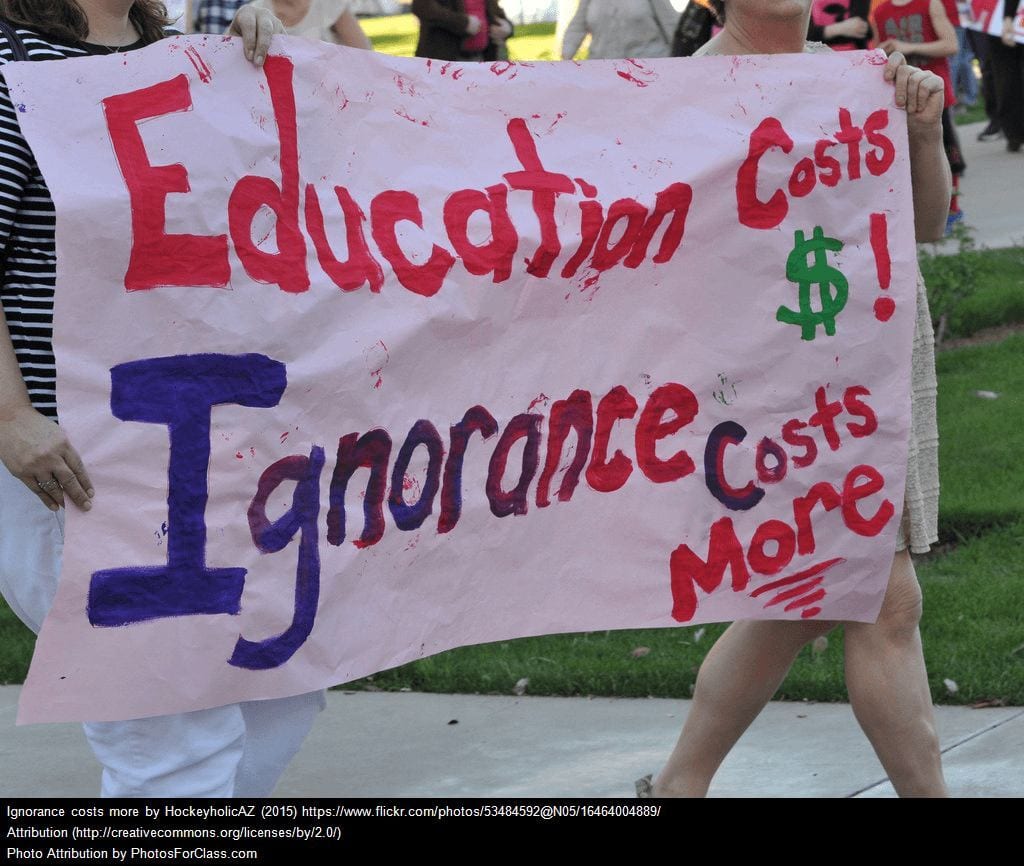NetSupport – a classroom management solution used throughout the globe – has published the results of a survey asking educators who either manage or use technology about the use and benefits of education technology in their schools. Educators were asked about the challenges they encounter and whether more funding or training or another support would improve the effectiveness of education technology.
Given the growth in number of edtech tools used per school district reported by LearnPlatform – tripling between 2017 and 2023 – NetSupport wanted to gather insight from classroom teachers, IT staff, and administrators about how well-equipped educators feel about using and managing technology.
Among the findings:
93 percent of educators felt that education technology makes teaching and learning better.
When asked who was more responsible for ensuring education technology was used effectively, 34 percent of respondents said that teachers were key in making sure that education technology was used effectively. Twenty-seven percent of respondents reported that IT staff were responsible for making sure that education technology was used effectively and an equal percent of respondents said it was the responsibility of school leaders.
When asked what would be most helpful in maximising the use of technology 32 percent reported that they wanted more time to learn and improve how to best use classroom tech and 22 percent said they needed more time for training. These two responses combined – 54 percent – are nearly double the 28 percent who reported they wanted more funding to purchase technology.
10 percent of respondents stated that they wanted fewer technology tools and a simplified approach to using classroom technology.
Al Kingsley, CEO of NetSupport, said, “These results support our experience in working with teachers and education leaders. Across the globe and in the United States, educators say that devices and learning technology offer significant benefits, but we cannot overlook the pressing need to give teachers proper training and time to manage the technology they are currently using.”
“Furthermore, purchasing technology needs to be made on clearly stated goals,” added Kingsley. “The fact that respondents to this survey suggested that teachers, IT staff, and school leadership shared roughly the same amount of responsibility indicates to me that perhaps there is some confusion about who is responsible for such decisions. There is less confusion about responsibilities when the decision to purchase is based on clearly stated objectives.”
AI continues to shape our daily lives and education is no exception. While AI offers promising enhancements to education, ethical and safety implications give many parents pause. With 93% of parents of school children ages 5 and up concerned about AI being used in the classroom or at school, Norton, a consumer Cyber Safety brand of Gen (NASDAQ: GEN), today released deeper insights into what parents think about their children using AI and shared best practices to safely navigate the back-to-school season.
Norton surveyed parents and found that 50% are concerned that AI-generated content may be biased or incorrect, and they fear an over-reliance on technology.
“Keeping our children safe starts with open, ongoing conversations. The Smart Talk, created in collaboration with National PTA, helps families talk about digital safety and promote personal responsibility with technology. With open discussions, we can embrace innovation while guiding children to use technology safely and responsibly,” said Kim Allman, Head of Corporate Responsibility and Public Policy at Gen.
Parents’ Perspective on the Dangers and Benefits of AI in Education
A recent Norton survey found parents of school children ages 5 and up have mixed opinions on their children using AI. Among the top concerns:
51% worry about their children coming across inappropriate content.
50% are concerned that AI-generated content may be biased or incorrect, and they fear an over-reliance on technology.
46% are apprehensive about their children sharing personal data online.
Despite these concerns, many parents remain optimistic about AI’s role in their children’s lives, touting the various ways that it can be used to a child’s advantage in the classroom. Norton found:
Nearly half (49%) of parents noted they would approve of their child using AI to complete schoolwork, out of the 35% of parents who support their oldest child using AI in the classroom.
69% believe it should be utilized for research in classrooms or at school.
48% trust lesson plans and curriculum created with AI tools.
On the other hand, only one-fourth (25%) of parents with children ages 5 and up are very confident teachers will be able to identify assignments or essays produced by AI.
Helping Keep Kids Cybersafe
Here are some tips to help keep your children cybersafe at school this year:
Protect Personal Information: Educate your children on how to safeguard their personal information, especially when it comes to interacting with AI platforms or chatbots. Norton 360 with LifeLock offers comprehensive protection including antivirus, malware, ransomware and identity theft protection, in case your child’s personal information falls into the wrong hands.
Verify Website Safety and Use a VPN: It is important for you and your children to check the browser connection and the URLs to ensure a site is secure, even more so when accessing AI tools or platforms. Norton recommends using a Virtual Private Network, like Norton Ultra VPN, to help provide real-time protection against scammers while also offering secure password management and alerts.
Enable Age-Appropriate Settings: Using AI settings designed for different age groups will help ensure your family is set up for success when handling AI tools and platforms. Additionally, parental controls like Norton Parental Control will help you monitor and manage your child’s online activities.
Promote Integrity and Responsibility: Norton advises parents and teachers to talk with children and students about the importance of integrity and mindful behavior as a foundational step of Cyber Safety. For example, The Smart Talk—co-created by National PTA and Norton—is a tool to help individual families have tailored conversations about household tech decisions and how to be responsible digital citizens.
The Society for Science (the Society), a nationally recognized leader in STEM education, announced the selection of 100 extraordinary educators for the Advocate Program for the 2024-2025 school year. Now in its 10th year, this program offers training, stipends, and year-round support to STEM educators and mentors helping students from traditionally underrepresented races/ethnicities and low-income households to enter STEM research fairs and competitions.
The Society is awarding a total of $326,000 in funding. The Advocate Program aims to expand access and opportunity across science and technology for students, acknowledging the critical role educators and mentors play in developing research skills necessary for future scientists and engineers and science-minded citizens. This year, as teachers navigate the evolving landscape of AI and other new technologies in the classroom, their guidance remains essential for students who will become trailblazers in diverse and emerging fields, from addressing global challenges in climate science to pioneering innovations in biotechnology.
Educators not only assist with the logistical challenges of entering STEM research competitions, including selecting competitions to enter, gathering appropriate materials, and meeting deadlines, but also Advocates often guide students in pinpointing and selecting research topics and carrying out projects.
Award recipients this year come from 38 states, the District of Columbia, Puerto Rico, and the Northern Mariana Islands. This is also the first year there are two educators from the U.S. Virgin Islands. Twenty-nine are middle school teachers, 56 are high school teachers, two are affiliated with universities while six work in nonprofit settings. This year’s Advocates are reaching students from a myriad of geographic areas as well, with 91 in public schools, 1 in a private school, and 1 in a tribal school—spanning urban, rural and suburban communities.
This year, 87 Advocates will each receive a $3,000 stipend, while 13 Lead Advocates will each receive $5,000 and oversee a group of educators in the program. Lead Advocates have the same goals and framework for the year as the regular Advocates, with the added responsibility of organizing and hosting cohort calls, where they mentor and discuss challenges and opportunities. The program operates in one-year cycles where Advocates work to increase the number of students they guide through the research and competition processes. All Advocates aim to add a minimum of three–five additional students each cycle, depending on their individual goals and experience level.
“As we celebrate the 10th anniversary of our Advocate Program, it’s inspiring to reflect on how far we’ve come—from just 9 teachers in our inaugural year to 100 passionate educators annually. These educators are empowering students to explore, innovate and enter science competitions. Their commitment is a testament to the transformative power of education, and we are thrilled to see the continued growth and impact of these programs,” said Maya Ajmera, President and CEO of Society for Science and Executive Publisher of Science News.
Over the decade, 398 teachers from 47 states and the District of Columbia have participated in the program. Advocates report that the program has significantly enhanced their knowledge and capacity to support students in research and competition. Additionally, survey data indicates that students who participated in the program experience increased content knowledge, self-confidence, and skill-building related to STEM.
To date, Advocates have supported more than 7,000 students during their participation in the program, of which, 5,200 students have successfully competed in at least one science research competition. During the 2023-2024 cycle, 68% percent of student mentees participated in science competitions at the local and/or national level. Overall, students of Advocates are responsible for over 9,200 unique competition entries, with many students entering more than one competition. Ninety percent of those students are from low-income households and 75% are of a race or ethnicity underrepresented in STEM.
In June, this year’s class of educators gathered at the annual Advocate Training Institute in the nation’s capital where Lead Advocates met with their cohorts for the first time to converse on critical topics ranging from effectively engaging underrepresented populations in STEM research to empowering students to see themselves as scientists. New Advocates also began planning their initiatives for the coming school year under the mentorship and direction of Lead Advocates.
This year’s Advocate Program is made possible by Arconic Foundation, Battelle, the Central Intelligence Agency, Intel Corporation and Regeneron.
The following are 2024-2025 Lead Advocates, who will oversee groups of Advocates.
2024 – 2025 Lead Advocates:
Stephen Beall, City High School (Tucson, AZ)
Christina Campos, West Oso Junior High (Corpus Christi, TX)
Rochelle Darville, West St. John High School (Edgard, LA)
Chance Duncan, Russellville High School (Russellville, AR)
Susie Fisher, Tongue River Middle School (Ranchester, WY)
Dede Henderson, South Hamilton Middle and High School (Jewell, IA)
Kaleena Jedinak, Tybee Island Maritime Academy (Tybee Island, GA)
Ben Martin, McCluer High School (Florissant, MO)
Maria Martinez, Harmony School of Excellence Laredo (Laredo, TX)
Joy Mordica, Equity Research Group Inc (Brookhaven, GA)
Eual Phillips, Spring-Ford Area High School (Royersford, PA)
Jennifer Stover, Lufkin High School (Lufkin, TX)
Paul Timm, Lyons-Decatur Public Schools, (Lyons, NE)
2024 – 2025 Advocates:
Rachel Acuna, Alta Vista Early College High School (Anthony, NM)
Jakara Bachua, STEM NOLA (New Orleans, LA)
Carmen Bird, Alfredo Andrews Elementary School (Kingshill, VI)
Ronald Brillantes, Porcupine School (Porcupine, SD)
Aja Brown, The Metropolitan Soundview High School (Bronx, NY)
Karen Bruening, Pensacola High School (Pensacola, FL)
Glen Bybee, Los Angeles Academy Middle School (Los Angeles, CA)
Christina Campos, Antonio E. Garcia Center (Corpus Christi, TX)
Janirette Chaves Rodriguez, River Springs Middle (Orange City, FL)
Tanya Chiarella, Billerica Public School (Billerica, MA)
Jacob Contreras, Tornillo High School (Tornillo, TX)
Patrice Cooley, Indiana Math and Science Academy North (Indianapolis, IN)
Ann Cowan, Hiram High School (Hiram, GA)
Keishla Crespo, Escuela con Causa Rosalina C. Martinez (Guaynabo, PR)
Jane Cunningham, Cass Technical High School (Detroit, MI)
Susan Curtis Flores, Truman Middle (Fontana, CA)
Lakshmi Darbha, Aavanee.org (Clarksburg, MD)
Geizi Dejka, San Juan College High School (Farmington, NM)
Harry Dittrich, Pathway School of Discovery (Dayton, OH)
Marifi Doculan, Marianas High School (Saipan, MP)
Susan Dougherty, Stamford High School (Greenwich, CT)
Roger Dowdney, Thomson-McDuffie Middle School (Thomson, GA)
Colleen Duda, Bronx Center for Science and Mathematics (Bronx, NY)
Velicia Everett, Sampson Middle School (Clinton, NC)
Terica Gagophien, Vicksburg High School (Vicksburg, MS)
Shauna Garbe, Barratt Elementary School (American Fork, UT)
Genevieve Garcia, Kotlik School (Kotlik, AK)
Jennifer Gentry, Ph.D., Critical Reasoning Science Partners (Nashville, TN)
Sondra Harris, Indiana Math and Science Academy West (Indianapolis, IN)
Sam Hartpence, Pathfinder High School (Lander, WY)
Jennifer Hatch, Medomak Valley High School (Waldoboro, ME)
Brigette Hernandez, Woonsocket High School (Woonsocket, RI)
Rebecca Hiatt, Baylor College of Medicine Biotech Academy at Rusk (Houston, TX)
Matt Hinchley, Liberty Bell Junior-Senior High School (Winthrop, WA)
Tracyee Hogans Foster, Dogwood Middle School (Richmond, VA)
Stacie Hopple, New Lexington Middle School (New Lexington, OH)
Sunitha Howard, Lincoln High School (Yonkers, NY)
Rania Ibrahim, Dana Middle School (Arcadia, CA)
Oktay Ince, Horizon Science Academy Columbus High School (Columbus, OH)
Jasmine Jones, Skyline High School (Dallas, TX)
Carol Jones, Pine Ridge Middle School (West Columbia, SC)
Pamela Joslyn, Susan Clark Junior High (Muscatine, IA)
Abraham Kamara, Memorial Middle School (Owasso, OK)
Michele Karnbach, Woodbridge High School (Woodbridge, VA)
Sarah Kim, Magnolia Science Academy 6 (Los Angeles, CA)
Olivia Kuper, North Greene High School (Greeneville, TN)
Valerie Ledford, Columbia High School (Lake City, FL)
Brianne Loya, Bioscience High School (Phoenix, AZ)
Jeniffer Madrid, Rice Intermediate School (San Carlos, AZ)
Abigail Marshall, Browning High School (Browning, MT)
Demvia Maslian, New Mexico Military Institute (Roswell, NM)
Justice Mason, Little Rock Southwest High School (Little Rock, AR)
Kristi Mathiesen, Monte Vista Middle School (Monte Vista, CO)
Sumitra Miriyala, AT Still University (Kirksville, MO)
Shawn Mithell, DuVal High School (Lanham, MD)
Pamela Nagafugi, University of Colorado (Denver, CO)
Sam Northey, SPPS Online High School (St. Paul, MN)
Stephen Nye, Julia Landon College Preparatory and Leadership Development Academy (Jacksonville, FL)
Wayne Oelfke, Ft. White High School (High Springs, FL)
Sharon Okoye, Albemarle Road Middle School (Charlotte, NC)
Tara Olenja, Hughes Academy of Science & Technology (Greenville, SC)
Alfred Olivas, INSIGHTS Science Discovery (El Paso, TX)
Sellah Owiti, Colleton County High School (Waterboro, SC)
Suneetha Panda, Northeast High School (Macon, GA)
Brenda Perez-Goodrum, New Liberty Innovation High School Salem (Salem, MA)
Garrick Purdie, Duplin Early College High School (Kenansville, NC)
Liliana Ramos, Ronald Reagan / Doral Senior High School (Doral, FL)
Jacquelyn Rondhuis, Parkrose High School (Portland, OR)
Laura Rosado, Colegio San Ignacio de Loyola (San Juan, PR)
Christine Sanfratello, Lindenhurst Senior High School (Lindenhurst, NY)
Zulaika Shamshieva, Tallahassee School of Math and Science (Tallahassee, FL)
Latasha Sheffield, Athol High School (Athol, MA)
Katie Southard, Salem High School (Salem, AR)
Quinton Spikener, XyayX the Movement (Brooklyn, NY)
Jason Cyril Tajores, Ivanna Eudora Kean High School (St. Thomas, VI)
Mashika Tempero Culliver, RB Hudson STEM Academy (Selma, AL)
Kaneka Threatt, Lowndes County Career Tech Center (Hayneville, AL)
Julie Throne, Cedar Shoals High School (Athens, GA)
Romalyn Ubaldo, Santa Rosa High School (Santa Rosa, NM)
Carol Unterreiner, Milwee Middle School (Longwood, FL)
Lizbeth Valera, San Luis Middle School (San Luis, AZ)
Jeanettra Watkins, Homewood Flossmoor High School (Flossmoor, IL)
Aisha Weaver, Johnnie Colemon Academy (Chicago, IL)
Candice White, Turning Point Secondary School (Arlington, TX)
Yolanda Whitted, Girls Global Academy (Washington, DC)
Jill Wood, Independence High School (Coal City, WV)
Heather Wygant, Santa Cruz County Office of Education (Santa Cruz, CA)
Learn more about this year’s Advocates here: https://www.societyforscience.org/outreach-and-equity/advocate-program/meet/2024-25/
NetSupport – a classroom management solution used throughout the globe – has published the results of a survey asking educators … Read more Innovation Insights, AI, benefits, challenges, classroom, classroom management, data, district, edtech, edtech benefits, Education eSchool News








